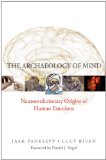Kindle “Big Deal” – More Than 500 Books as Low as $0.99 at Amazon.com
August 14, 2012
From now until August 23, Amazon.com’s Kindle store is offering “The Big Deal” – over 500 ebooks from $0.99 to $3.99. As Amazon states: “Individual titles may have additional territory restrictions, and not all deals are available in all territories.”
Browse the “Big Deal” selections in General Nonfiction; Health, Mind and Body; Business & Investing.
Selections include:
79 Short Essays on Design by Michael Bierut for $3.99
What is Analytic Philosophy? by Hans-Johann Glock for $3.99
What Science Offers the Humanities by Edward Slingerland for $3.99
What Philosophers Know: Case Studies in Recent Analytic Philosophy by Gary Gutting for $3.99
The Selfish Meme: A Critical Reassessment by Kate Distin for $3.99
The Normal Personality: A New Way of Thinking about People by Steven Reiss for $3.99
A Unified Theory of Happiness by Andrea F. Polard for $3.99
Why Life Speeds Up As You Get Older: How Memory Shapes our Past by Douwe Draaisma for $3.99
Richard Rorty (Contemporary Philosophy in Focus) ed. by Charles Guignon and David R. Hiley for $3.99
Religion and Anthropology: A Critical Introduction by Brian Morris for $3.99








